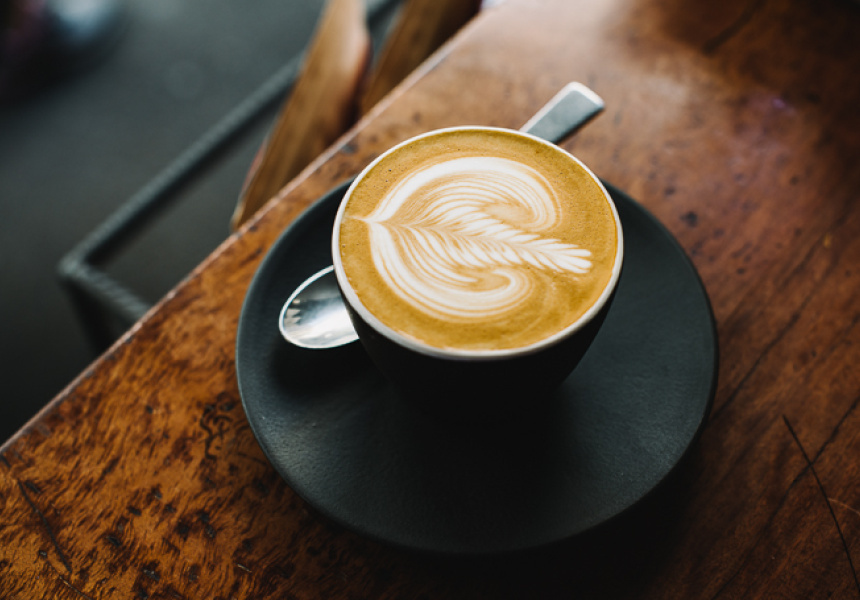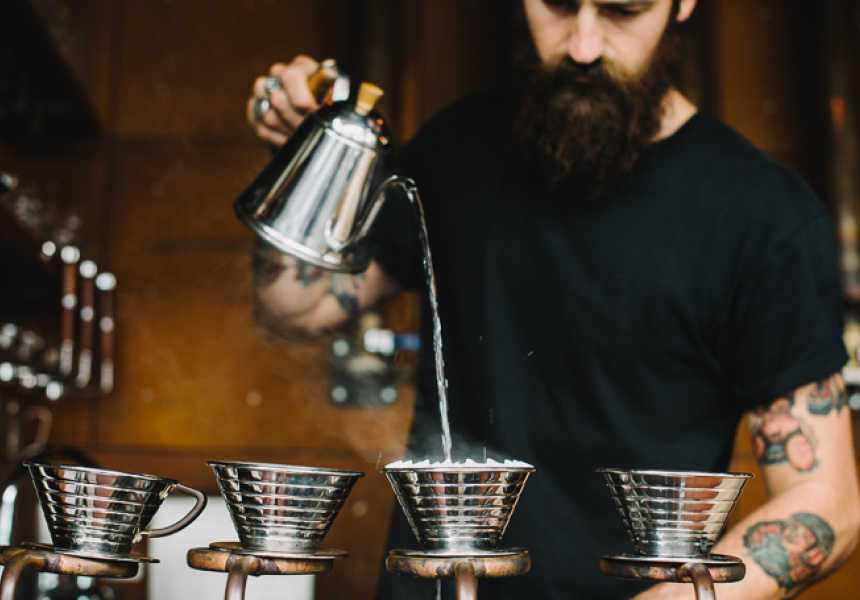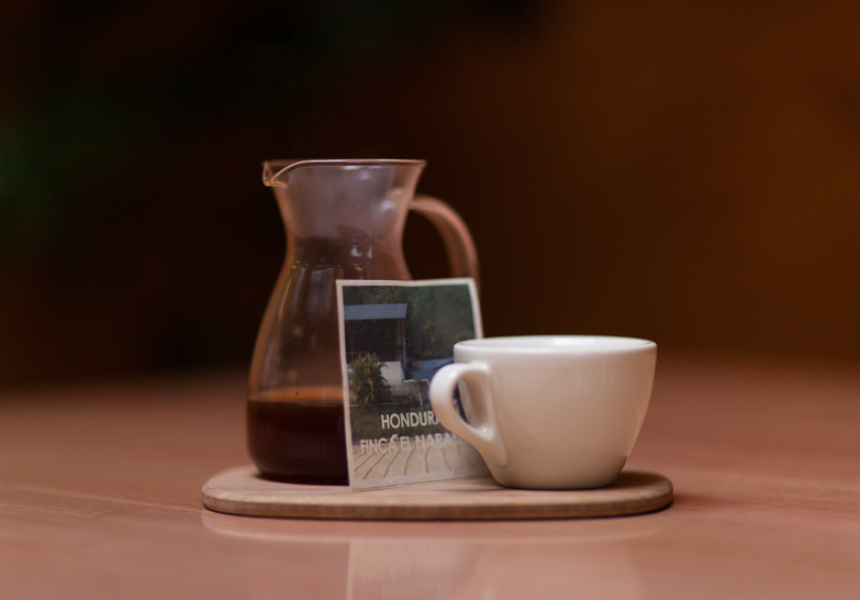“It’s like we decided long ago that everything better than ‘not complete shit’ should sit in the same category,” says Andrew Kelly of Melbourne’s Small Batch Roasting Co.
The world-recognised roaster is done with the term “specialty coffee” – a description so common in the modern marketplace that it’s become meaningless. According to Kelly, the hackneyed phrase is “a fairly unhelpful blanket term which merely denotes ‘not commercial’”.
So what do people mean when they talk about “specialty coffee”? Mostly they’re talking about “specialty-grade coffee” – a classification from The Specialty Coffee Association of America (SCAA) – meaning Arabica beans that score 80 or above out of 100 according to its strict criteria.
We think you might like Access. For $12 a month, join our membership program to stay in the know.
SIGN UPThis worldwide system is the primary means of classifying coffee. It’s scored by qualified “Q graders” during the “cupping” process – the practice of observing the tastes and aromas of brewed coffee – based on specific attributes and faults. Beans that score less than 80 points are classed as “commercial grade” or “commodity grade” coffee (which mean the same thing) and rarely find their way into cafes. They generally wind up as instant coffee or in coffee-flavoured drinks and food.
But as coffee quality continues to improve – thanks to research, innovative farming and processing techniques and an increase in demand for high-grade products – Kelly suggests the SCAA’s 20-point scoring zone is too generous. “An 84-points coffee (let alone a sub-80 one) tastes like stuff I don’t want to put in my mouth, and life is too short,” he says.
Sydney-based coffee broker Andres Latorre agrees. He uses his own terms, “base specialty” for coffees that score between 80 and 84, and “high specialty” for those over 85. “Anything above 87 I call ‘boutique’ or ‘microlot’,” he says. While these are not official terms, Latorre says a more refined lexicon is developing in the industry to make things clearer. “Ninety-plus” is another term that’s become popular, and it means exactly what it says.
Then there’s the “specialty coffee industry” – a supply chain that begins at coffee farms before moving through traders, roasters, cafe owners and baristas, ending with consumers. It involves a lot of people and the distance between start and end points is vast. It’s influenced by weather, rainfall and disease, and is highly dependent on economics. There’s a lot that can go wrong – or right – between crop and cup.
SCAA executive director Ric Rhinehart says aside from the quality of raw products there is “the fundamental premise that specialty coffee beans will always be well prepared, freshly roasted and properly brewed”.
Kelly warns that, “By the time it’s black coffee or, worse, a latte, it all looks the same. Especially because it’s all wrapped up in very often great marketing – a sexy machine, a barista wearing an artisanal apron, and so on.”
The best coffee shops provide an exceptional, genuine experience focused on saluting upstream labour and delivering the best representation of a coffee’s character. Some roast in-house and others work closely with roasters who are excited to explore coffee. These final links in the chain are by far the most profitable, and businesses that are truly invested in supporting their industry acknowledge the economic influence of paying a fair price – one that enables hardworking producers to improve their practices and their (in many cases third-world) standards of living.
But there will always be those content to ride their colleagues’ coattails. When, in an attempt to pass as innovators, some adopt the same vague language, tech, marketing techniques and even design elements used by trendsetters, it can become tricky to discern the leaders from the followers.
So what should we look for? “We used to look for cafes that would, say, grind-on-demand,” says Adam Marley from Adelaide roaster Monastery Coffee. “Now that’s just accepted and the new quality signifiers are harder to spot.”
The hallmarks of genuine quality exist beyond simple slogans. Talk to your barista. Find out how much they know, and whether they can recommend something to your taste.
“The first thing I’ll ask a barista is ‘what’s the farm?’” says Marley. “If they don’t know, the coffee is probably not being produced ethically.” This line of questioning follows the rule that while delicious coffee is not always sustainably produced, sustainably produced coffee is almost always delicious. Asking who roasted the coffee is fine too, and will allow you to do some research of your own.
When travelling, Ian Callahan, owner of Adelaide cafe Bar 9, Googles “filter coffee” (not “best coffee” or “specialty coffee”) and uses the results as a guide. “If a venue is serving [coffee made with] manual-brew methods, chances are someone involved in that business is about the coffee,” he says. “It means their espresso will probably also be yum.”
Specialty coffee roasters:
Adelaide
Monastery Coffee
Dawn Patrol Coffee Roasters
Monday's Coffee Co
Two Fish Coffee
Melbourne
Seven Seeds
Small Batch
Market Lane
Sydney
Mecca
Reuben Hills
Single O
Artificer Specialty Coffee Bar & Roastery
Brisbane
Odyssey Project
Wolff Coffee Roasters
Fonzie Abbott
Perth
Pound Coffee
Leftfield Coffee
Blacklist Coffee Roasters
Grouch & Co
Canberra
Ona



